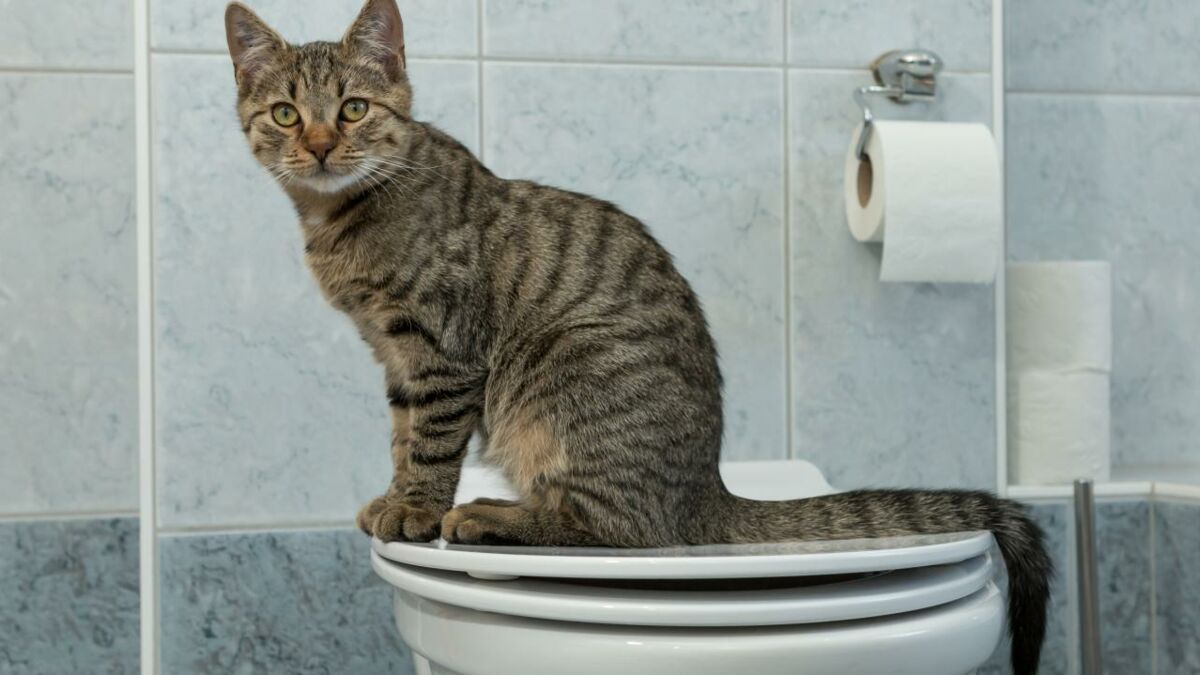Why Flushing Cat Poop Down Your Toilet May Cause Problems - Recommendations for Proper Disposal
Why Flushing Cat Poop Down Your Toilet May Cause Problems - Recommendations for Proper Disposal
Blog Article
The article in the next paragraphs on the subject of Don’t flush cat feces down the toilet is pretty much engaging. Give it a go and make your own personal results.

Introduction
As pet cat proprietors, it's vital to bear in mind how we throw away our feline close friends' waste. While it may appear hassle-free to flush cat poop down the bathroom, this method can have damaging consequences for both the environment and human health.
Alternatives to Flushing
The good news is, there are more secure and extra responsible means to throw away pet cat poop. Think about the following alternatives:
1. Scoop and Dispose in Trash
The most typical method of getting rid of cat poop is to scoop it into an eco-friendly bag and throw it in the trash. Be sure to make use of a devoted clutter inside story and deal with the waste without delay.
2. Usage Biodegradable Litter
Opt for biodegradable cat trash made from products such as corn or wheat. These litters are eco-friendly and can be securely dealt with in the garbage.
3. Bury in the Yard
If you have a lawn, consider burying feline waste in an assigned location away from veggie yards and water sources. Be sure to dig deep enough to stop contamination of groundwater.
4. Set Up a Pet Waste Disposal System
Purchase a family pet garbage disposal system especially designed for cat waste. These systems make use of enzymes to break down the waste, reducing smell and ecological influence.
Health and wellness Risks
In addition to ecological problems, purging feline waste can likewise pose wellness threats to humans. Cat feces might include Toxoplasma gondii, a parasite that can trigger toxoplasmosis-- a potentially extreme disease, particularly for expecting women and people with damaged immune systems.
Ecological Impact
Flushing pet cat poop introduces unsafe microorganisms and bloodsuckers into the water system, posing a considerable threat to aquatic environments. These impurities can negatively affect aquatic life and concession water top quality.
Conclusion
Responsible animal ownership prolongs beyond supplying food and sanctuary-- it additionally entails correct waste monitoring. By avoiding purging pet cat poop down the bathroom and going with different disposal approaches, we can lessen our environmental footprint and protect human wellness.
Why You Should Never Flush Cat Poop Down the Toilet
A rose by any other name might smell as sweet, but not all poop is created equal. Toilets, and our sewage systems, are designed for human excrement, not animal waste. It might seem like it couldn’t hurt to toss cat feces into the loo, but it’s not a good idea to flush cat poop in the toilet.
First and foremost, assuming your cat uses a litter box, any waste is going to have litter on it. And even the smallest amount of litter can wreak havoc on plumbing.
Over time, small amounts build up, filling up your septic system. Most litter sold today is clumping; it is made from a type of clay that hardens when it gets wet. Ever tried to scrape old clumps from the bottom of a litter box? You know just how cement-hard it can get!
Now imagine just a small clump of that stuck in your pipes. A simple de-clogger like Drano isn’t going to cut it. And that means it’s going to cost you big time to fix it.
Parasitic Contamination
Believe it or not, your healthy kitty may be harboring a nasty parasite. Only cats excrete Toxoplasma in their feces. Yet it rarely causes serious health issues in the cats that are infected. Most people will be fine too if infected. Only pregnant women and people with compromised immune systems are at risk. (If you’ve ever heard how women who are expecting are excused from litter cleaning duty, Toxoplasma is why.)
But other animals may have a problem if infected with the parasite. And human water treatment systems aren’t designed to handle it. As a result, the systems don’t remove the parasite before discharging wastewater into local waterways. Fish, shellfish, and other marine life — otters in particular — are susceptible to toxoplasma. If exposed, most will end up with brain damage and many will die.
Depending on the species of fish, they may end up on someone’s fish hook and, ultimately on someone’s dinner plate. If that someone has a chronic illness, they’re at risk.
Skip the Toilet Training
We know there are folks out there who like to toilet train their cats. And we give them props, it takes a lot of work. But thanks to the toxoplasma, it’s not a good idea.

I have been very drawn to Don’t flush cat feces down the toilet and I'm hoping you enjoyed reading the entry. Enjoyed reading our blog? Please share it. Help others check it out. Bless you for your time. Please check our blog back soon.
Click On This Link Report this page